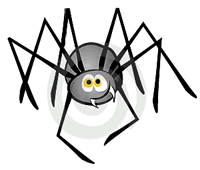In English when you know something or somewhere well, you can say that you “know it like the back of your hand” or that you “know it inside out / back to front / upside down”. If you’re talking about people, you might say “I know him/her/them like I know myself.”
Yesterday I learnt that the equivalent idiom in French is “Je le connais comme ma poche” (I know it like my pocket) or “Je le connais comme le fond de ma poche” (I know it like the bottom of my pocket).
In Spanish the equivalent is “Lo/la conozco como la palma de mi mano” (I know it like the palm of my hand), and in Turkish it also the palm of the hand that is best known: “Avcumun içi gibi biliyorum” (I know it like the palm of my hand).
The German equivalent is “Ich kenne es wie meine Westentasche” (I know it like my waistcoat pocket).
What about in other languages?


